If you are planning to set up a non-emergency medical transportation business start-up, keep in mind that adherence to regulations and compliance guidelines is of utmost importance. These rules are in place to protect patient’s health and safety during transportation and to uphold the credibility of the sector. Anyone wishing to launch or run a successful NEMT business must comprehend and adhere to these rules. In this blog, we’ll discuss the important laws and compliance standards that you need to be aware of in the NEMT sector so be sure to read all the way through.
Licensing and Permits
You’ll probably need to get particular licenses and permissions in order to run a non-emergency medical transportation service. It is essential to learn the rules in your jurisdiction because the requirements differ from state to state. These licenses normally consist of a business permit, a vehicle registration, and a driver’s license. To lawfully transport patients and to guarantee their safety and the caliber of the service, compliance with certain license standards is essential.
Insurance Coverage
For every non-emergency medical transportation business start-up, appropriate insurance coverage is essential. In the case of an accident or other unexpected events, it is imperative to safeguard yourself, your staff, and your clients. To protect against other potential hazards, it is also wise to take into account supplemental coverage, such as business vehicle insurance and workers’ compensation.
Driver Qualifications and Training
The NEMT sector needs skilled and sympathetic drivers who can deliver dependable and safe transportation services. Compliance standards frequently list specific requirements for drivers, such as a current driver’s license, a spotless driving record, and background checks. Additionally, in order to address the demands of patients with disabilities or medical problems, drivers may need to undergo specialized training programs including CPR and first aid certification, defensive driving tactics, and sensitivity training.
Vehicle Standards and Maintenance
To guarantee the comfort, accessibility, and safety of patients, non-emergency medical transportation vehicles must adhere to strict criteria. Vehicles must frequently meet compliance criteria that stipulate that they must be wheelchair accessible, have safety restraints, and be kept in good mechanical condition to avoid breakdowns. To keep cars in top shape and compliance with rules, routine inspections, and maintenance checks are required. To maintain the dependability of your fleet and the safety of your passengers, you must create processes for vehicle maintenance and repair.
HIPAA Compliance
Since transporting patients entails processing personal medical information, the Health Insurance Portability and Accountability Act (HIPAA) requirements apply to this sector of the NEMT market. To safeguard patient privacy and maintain the confidentiality of medical records, NEMT providers are required to follow HIPAA regulations. This includes putting security measures in place to protect electronic patient health data, educating workers about HIPAA compliance, and putting procedures in place to deal with security breaches or unauthorized disclosures. For NEMT firms to avoid legal repercussions and foster confidence with patients and healthcare professionals, it is crucial to understand HIPAA standards.
To sum up
While planning to set up a non-emergency medical transportation business start-up, compliance with laws and regulations is essential. You can safeguard your passengers’ safety and well-being, uphold the reputation of your company, and earn the faith of healthcare providers by understanding and adhering to these standards. Keep abreast of regulatory developments and seek expert assistance to maintain continuous compliance in this dynamic sector.
